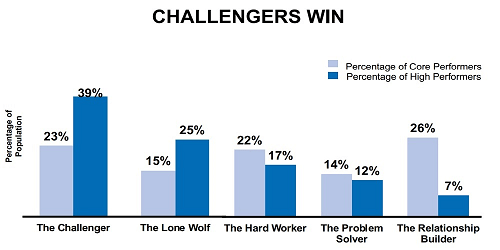
5.20.20 – CI
AV integrators should adopt the challenger sales method that builds constructive tension with customers and prospects, getting them to think in new ways.
When Tethr chief product and research officer Matt Dixon told 2019 PSNI Supersummit attendees about creating effortless experiences for their customers by adopting the challenger sales method, little did he know just how challenging the global sales landscape would become a year or so later.
Now that integrators are faced with picking up the pieces from the effects to their businesses because of the coronavirus outbreak around the world, it’s more important than ever to rely on the challenger sales method to help you keep your foot in the door or open new ones on the road to economic recovery.
“Today’s sales environment is brutal,” said Dixon in a PSNI Global Alliance webinar this week focused on selling in a down economy. He noted customer horizons have dramatically shortened, contact turnover is increasing, customer spending is way down and price pressure is significant because of the pandemic.
Most companies are also expanding the group needed to give consensus on large purchasing decisions and customers are pushing the risk of any purchase onto the suppliers, said Dixon. There’s increased demand for custom work, he said, and more customers are using consultants for their purchases.
Interestingly, the sales experience was noted by more than half of buyers in the aftermath of the 2008-09 economic recession as the main driver of customer loyalty. That’s more than brand impact (19 percent), products and service offerings (19 percent) and value (9 percent) combined.
“Of course, what you sell matters, but these numbers are a function more of how you sell than what you sell,” said Dixon. “The thing that separates winners from losers is the ability to offer insight. That’s the core of a great sales conversation.
“The thing they want from you is what they couldn’t find on their own,” said Dixon. Challengers build constructive tension with their customers, he said, while relationship builders reduce customer tension. Challengers push customers outside their comfort zones and try to get them to think differently.
Maybe that’s why challengers have proven to be the highest performers, with 40 percent success in the most challenging sales environments, compared to about 25 percent for lone wolves and 17 percent for hard workers.
How and Why Challenger Sales Method Works
Challengers lead customers to their unique strengths, challenge customer assumptions, catalyze action and can scale their solutions across their entire customer bases. Of course, all of this can be complicated depending on how many people are at the table—and what parts of the company they represent.
“It’s not about the number of people at the table,” said Dixon. “It’s the diversity of those people. Diversity breeds dysfunction. Everyone thinks of the purchase with their own goals, priorities, metrics and means in mind. We call that the solution graveyard—where great ideas go to die.”
While the conventional wisdom is sales teams need champions within the company to push their deals across the finish line, Dixon paints a different reality. High performers seek go-getters, skeptics and teachers to seal the deal, while average salespeople go for friends, guides and climbers.
Go-getters forge consensus, fight for more and think beyond the traditional approach, even if it’s a little more risky, said Dixon.
The most successful challenger sales method wins come by leading with a thought-provoking insight and noticing if the person you share that insight with asks a thought-provoking question or shares useful information about the company in response.
From there, sales teams should note whether the response is focused on themselves or the company as a whole and if it’s focused on facts or opinions. If you get that far, you can get a signature or approval by suggesting the person do research or suggest next step you can take, said Dixon.
About the Author

D. CRAIG MACCORMACK, Executive Editor
Contact:
Craig MacCormack is a veteran journalist with more than 25 years of experience covering local and national news and sports as well as architecture and engineering before moving into his current role. He joined Commercial Integrator in January 2011.
